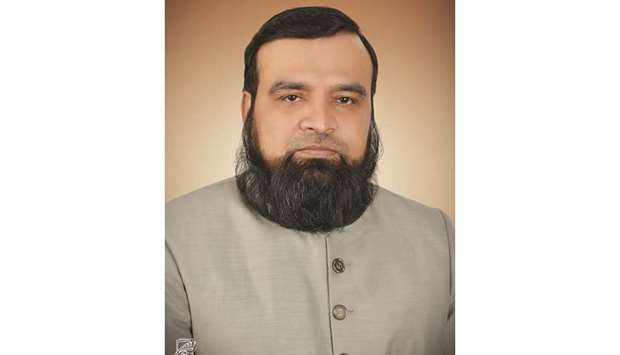Qatar has a history of being a hub for activities related to the promotion of Urdu language and literature. There are many community and literary organisations that hold different programmes to bring out multiple books related to the language.
The reason is simple. Qatar has a very strong Urdu speaking expatriate community. Majority of expatriates coming from India and Pakistan are either native speaker of Urdu or they can understand and appreciate Urdu literature.
Organising Urdu poetry symposiums (mushaira) has been a very old and regular activity in Qatar. There are numerous Qatar-based Urdu poets and writers. Nadeem Mahir is one of them. He writes poetry both in Urdu and Arabic and he has published many books as well. He is also known as an Arabic-Urdu translator.
Community recently got a chance to speak with Nadeem, a long-time resident of Qatar, about his poetic achievements and linguistic accomplishments.
Nadeem, who works for a government office, has been living in Qatar since 2000. “I have a master’s degree in theology from Aligarh Muslim University, (AMU) India. I got my school education from Darul Uloom Deoband in India with Arabic being the medium of education.
“Urdu is my native language. The love for the language is further ignited as I come from a family of poets. I continue to be a poet in fifth generation. I have made my noticeable literary achievements while living in Doha.”
Nadeem, who has four children, remained president of AMU Old Boys Association Qatar from 2008 to 2016. He has been the vice president of Anjuman Muhibban-e-Urdu Hind Qatar, a literary organisation, since 2005. “I worked as an editor for a monthly magazine Meri Rai in India from 1993. I am the assistant editor of the yearly Urdu magazine Alami Dastawez, publishing both from India and Qatar. I had also worked as a freelance reporter with newspapers namely; Qaumi Awaz, Rashtriya Sahara, Nai Duniya, Al Yaum in India.
“I have successfully translated three books from Arabic to Urdu. Recently, I translated Hisar Qatar, a book published by Al Jazeera in Arabic. I have also compiled two books in Urdu related to two established Indian businessmen in Qatar. The books are Aks-e-Yusuf and Nuqoosh-E-Hayaat.
“My yet another book is Hayat-e-Akhtar, a biography and poetic collection of freedom fighter, Islamic scholar and poet Molana Hameed Uddin Akhtar. Kalam e Shams is a collection of poetry of Hafiz Shams Uddin Shams, my great grandfather in fifth generation. I published a book of my own poetic works in 2014 with the name of Dastakon Ke Nishan. I am also working on my second poetic book. I am also working on a book telling the history of Qatar in Urdu. However, I have not so far published any book in Arabic.”
The man of letters does not see Urdu as a language but as a culture. “Urdu is not just a language. It represents a culture in the sub-continent. Here in Qatar, we have been trying to keep our culture alive. Qatar is popular for being a hub of Urdu-related activities in the Middle East. There are numerous literary groups and innumerable poets and writers in Qatar. So far, Urdu lovers have brought out over 70 books in Qatar.
“We have been trying to keep our younger generations in touch with Urdu in Qatar. Almost all Indian schools here offer Urdu as a subject. We have regularly been organising large Urdu poetic symposiums inviting known poets from India and Pakistan.”
Nadeem is optimistic about the future of Urdu as a language. “No doubt, there are a number of languages facing existential threat. Urdu also faces some challenge but it is not going to go nowhere. This is right Urdu is not the language associated with some kind of livelihood or work. It is, however, loved and cherished by millions of people. For them, it is a language of love and expression of their culture. There have been volumes of literature in Urdu. As far as Islamic literature is concerned, after Arabic, Urdu is the language that contains the maximum literature.”
The Urdu enthusiast notes an interesting phenomenon about Urdu’s future in India. “The areas where Urdu used to be a popular language – UP, Bihar and Delhi – are losing interest in the language. However, Urdu is getting popular in other states of India. For example, there are about 4, 000 Urdu medium schools in Maharashtra alone. The future is not bleak at all.” Nadeem has also been appreciated for his poetry in Arabic. “Though I have not published anthology of my Arabic poetry, I continue to write and recite my work for the Arabic speaking audience. I was the only non-Arab poet who was invited at the Arabic poetry festival held in Katara in March.”

..
